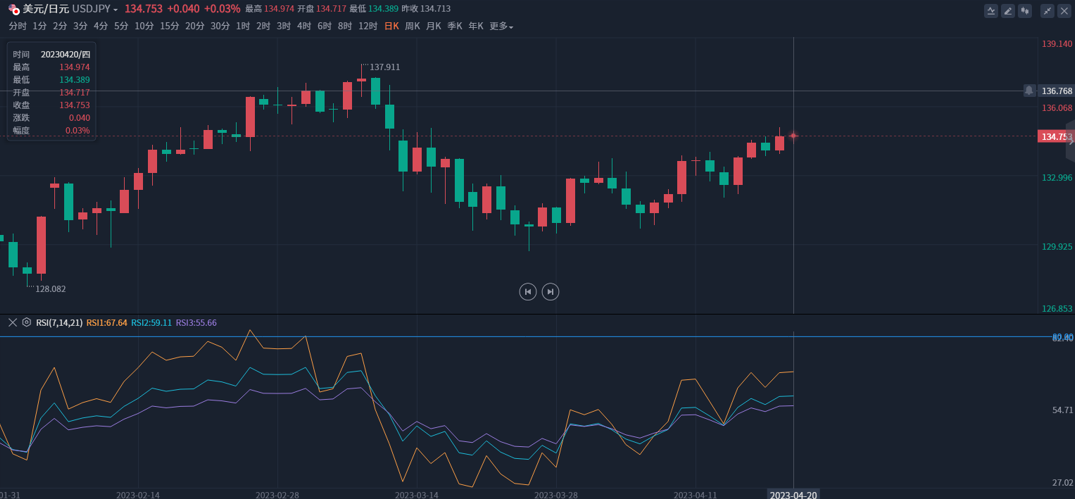Before the policy meeting, the Bank of Japan temporarily does not move YCC Buffett to invest in Japan's "national luck"
On April 20, it was reported that although the Bank of Japan will not adjust its controversial YCC policy at its policy meeting next week, its interest in adjusting in the second half of the year is "growing."。
On April 20, it was reported that although the Bank of Japan will not adjust its controversial yield curve control policy (YCC) policy at its policy meeting next week, interest in its adjustments in the second half of the year is "growing."。
Starting in 2013, in order to reverse Japan's low inflation rate and economic growth rate, Japan launched a massive economic stimulus and introduced the YCC policy.。Under this policy, the Bank of Japan, in addition to keeping short-term interest rates at -0.In addition to 1%, it also seeks to keep the 10-year Treasury yield around zero by buying Treasuries.。Ten years later, loose monetary policy is less effective than expected, inflation continues to languish, balance sheets have increased significantly, the yen has depreciated significantly, and there are more and more voices questioning YCC policy.。
On April 9, Kazuo Ueda officially took office as governor of the Bank of Japan。Markets are starting to look forward to whether the pragmatic central bank leader will close the door on Japan's YCC.。Surprisingly, Kazuo Ueda said at his inaugural press conference that he would continue the easing policies of his predecessor, adding to the uncertainty about Japan's economic outlook.。Next week's policy meeting will be the first policy meeting between Ueda and the men.。According to a survey released by the media earlier this month, most Bank of Japan watchers expect some degree of tightening of monetary policy in Japan by June this year。
But I'm afraid this meeting is going to disappoint them again.。
The BOJ's current thinking is to maintain its existing monetary policy until they can determine that Japan's wage growth is relatively robust, the sources said.。In addition, uncertain external risks have forced the Bank of Japan to be cautious in setting policy。For the doves of the Bank of Japan, they need more time to prove that these risks will not pull Japan back into recession before they are likely to abandon their ultra-quantitative easing stance。
It can be argued that the Bank of Japan is cautious in tightening monetary policy, after all, in 2000 and 2006, the Bank was politically criticized for raising interest rates prematurely.。
For now, Japan's economic situation is gradually improving。
First, Japan's labor market is still relatively tight, which helps employees fight for higher pay conditions。In this year's "spring fight" in Japan, Toyota, Uniqlo as the representative of large enterprises agreed to give employees the largest salary increase in nearly 30 years, the overall increase of more than 30%。In addition, according to the Bank of Japan's most recent quarterly survey, the range of wage increases for Japanese companies is gradually expanding, and in addition to large companies, employees of some small and medium-sized enterprises and small businesses have also received varying degrees of wage increases, which could ultimately determine the direction of the Bank of Japan's monetary policy.。
Second, due to the gradual expansion of the overseas banking crisis, more and more safe-haven funds have also flowed into Japan to support Japanese government bonds.。Multiple financial history events have shown that the yen appreciates whenever global investor behavior becomes more risk-averse or the fundamentals of the world economy become more uncertain。
Finally, overseas capital is also actively embracing the Japanese market。In an interview with the Nihon Keizai Shimbun in Tokyo on April 11, Buffett, founder of Berkshire, a leading U.S. investment firm, revealed that his shareholding in each of Japan's five major trading houses had increased to 7.4% and consider further investments in Japanese stocks。
Buffett, who has always focused on value investing, said Berkshire will continue to invest in Japanese trading companies for "10, 20 years."。He believes that the stock market in the next three to five years is not important, but one thing is certain is that in 20 or 50 years, Japan and the United States will be stronger than they are now, and Japan may become the largest investment destination outside the United States.。
Some analysts commented that Buffett's move is to invest in Japan's "national luck."。
According to the latest market news, if all goes well, the Bank of Japan will discuss the fate of the YCC at its policy meeting as early as June 15-16.。It will be hotly debated by the nine-member policy committee at that time, and let's wait and see。
As of press time, U.S. and Japan edged up 0 in the day..03% at 134.753。

·Original
Disclaimer: The views in this article are from the original Creator and do not represent the views or position of Hawk Insight. The content of the article is for reference, communication and learning only, and does not constitute investment advice. If it involves copyright issues, please contact us for deletion.